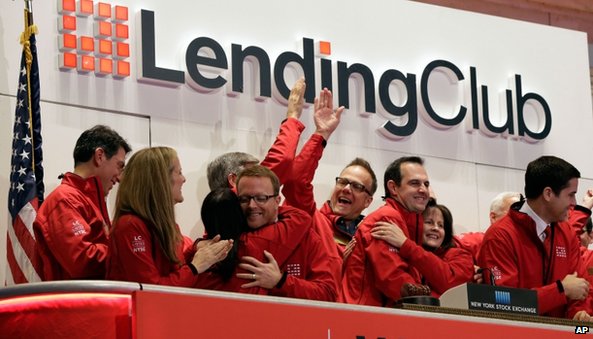With online technologies making it increasingly easier to connect with anyone around the world, new online services are being created everyday to take advantage of this boom. Online marketplaces such as eBay and social media websites such as YouTube and Facebook are examples of services that use the internet to help consumers who wish to connect with each other.
One of the more recent services created is peer-to-peer (P2P) lending. Much like a bank, peer-to-peer lending services act as financial intermediaries that match borrowers with lenders. Similar to conventional bank loans, each loan is graded on its quality and risk of default where return is higher for loans with lower credit ratings. With the majority of business operations done online, P2P lending services are able to incur lower costs and pass the savings onto borrowers in the form of lower interest rates. As a result, the majority of borrowers on P2P lending platforms take out loans to pay off higher interest loans such as credit cards.
At the forefront of the P2P lending industry is Lending Club, which raised $780 million in its IPO in 2014. Just behind them is Prosper, which has raised almost $200 million in venture capital. On these two platforms alone, loan issuances have grown from $26 million in late 2009 to $1.7 billion in the third quarter of 2014.
Of course, with the rise in the number of P2P lending platforms and the rise in the value of loan issuances, banks’ profits are at risk. A recent internal study done by Goldman Sachs shows that over the next five years, approximately $11 billion of the firm’s profit are at risk due to P2P lending services. The study also estimates that in terms of unsecured personal loans, P2P lending companies will capture 8% in market share in five years, up from 1.8% during the third quarter of 2014. This could cause big-time lenders such as Discover and Capital One to change their interest charges to borrowers.
However, as with all market disruptions and changes, big firms such as Discover and Goldman Sachs are finding ways to make money. Although P2P lending companies are taking business away from the big Wall Street lenders, many of those lenders are providing lines of credit and other services to the P2P lending companies. In addition, Goldman Sachs acted as the lead underwriter for the Lending Club IPO last year. Large lending firms are also directly using P2P services to gain revenue, with approximately 65% of loans on Lending Club and Prosper being made by institutional investors.
Although the rise of P2P lending platforms may decrease profits for the large Wall Street lenders, consumers in need of lower cost loans will only profit from this new type of service. Furthermore, with the interconnectedness that the internet provides, loans can also be made to individuals in one country by individuals in another country.




